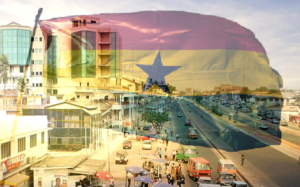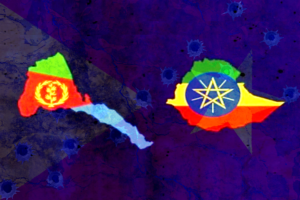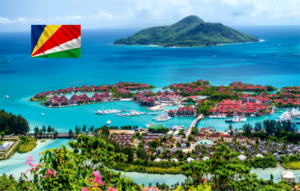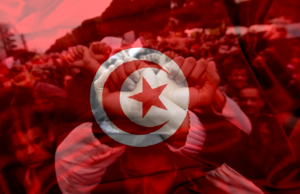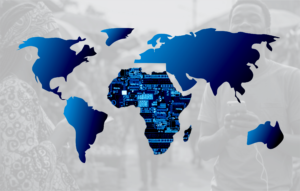Between Nigeria and Germany Trade Bond beyond the Billions: Ambassador Gunther
A record €3bn trade deal is just the surface of a 65-year partnership that is now powering homes, rebuilding communities, and forging deep human ties.
To a lot of families in Nigeria’s North East, the phrase bilateral relations isn’t an abstract political term. It’s the concrete reality of a newly rebuilt school, a restored health clinic, or a solar-powered borehole providing safe water to a community once shattered by conflict.
This on-the-ground stabilization, funded in part by Germany, is the human face of a strategic partnership that just hit a major economic milestone. This week, German Ambassador to Nigeria, Annett Gunther, confirmed that trade volume between the two nations has surged to an all-time high of €3 billion, a 30% jump reflecting Nigeria’s economic recovery.
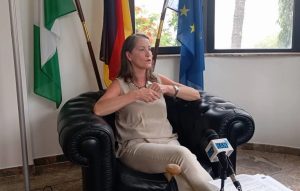
But as officials prepare for the upcoming joint Nigerian-German binational commission in Berlin, a deeper look reveals that the relationship goes far beyond trade figures. It’s a complex, 65-year-old alliance weaving together high-stakes politics, corporate investment, and profound social and family connections.
The numbers are a powerful headline. The €3 billion figure solidifies Nigeria’s post-recovery role as “Germany’s second-biggest trading partner in Sub-Saharan Africa”, as Ambassador Gunther noted. More than 90 German companies are active in the country, from pharmaceutical giants to automotive firms, indirectly creating an estimated 17,000 jobs.
But that’s only part of the employment story. German development cooperation, particularly through its KfW development bank, has supported micro, small, and medium-sized enterprises (MSMEs) in Nigeria, helping to create a staggering 120,000 jobs. This policy has also provided vocational training for over 167,000 Nigerians, half of them women, creating a direct pathway to economic empowerment for families across the nation.
Nowhere is the partnership more tangible than in the energy sector. The ambitious Presidential Power Initiative (PPI), a collaboration with German energy giant Siemens, is now in its second phase. The goal is to add 7 Gigawatts to Nigeria’s grid, but this is not a distant promise. Ten power transformers and ten mobile substations have already been delivered, a concrete step toward ending the energy deficits that have long hampered Nigeria’s economy.
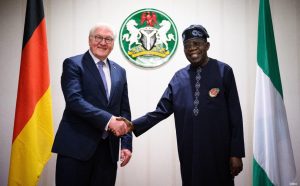
“This cooperation will add about 7 Gigawatts to Nigeria’s Energy Grid,” Gunther stated, emphasizing a twin focus. The partnership also includes cooperation in the gas sector, “eliminating gas flaring and improving Nigeria´s CO2 footprint”. This ‘green’ business dimension was further highlighted by a recent €40 million German investment in a waste management contract in Lagos, designed to prevent over 1.5 million tonnes of CO2 emissions.
While corporations talk trade, the human-to-human connections are deepening. Last year alone, German missions in Abuja and Lagos issued over 7,600 visas. These aren’t just statistics; they represent 1,400 long-term visas for students, professionals, and families reuniting, and 6,200 short-term visas for business and tourism. “This year, we are well on track to raise those numbers,” Gunther confirmed.
This flow of people builds on a rich cultural history. The Goethe-Institut has been a fixture in Lagos since 1962, and generations of Nigerians have followed the careers of national football heroes who became household names in the German Bundesliga.
This human bridge is also one of support. In the conflict-affected North East, German funding has helped UNICEF and other partners support over 150,000 people. This includes drilling over 60 solar-powered boreholes, as a lifeline providing safe water for nearly 300,000 people—and helping 40,000 out-of-school children return to education.
The partnership is anchored in a candid understanding of Nigeria’s security challenges. “Germany will continue to stand with Nigeria in the fight against terrorism,” Gunther affirmed. This year marks a new chapter with the launch of the first Bilateral Annual Programme, bringing military experts from both nations together. This formalizes years of support from the Bundeswehr Advisory Group in crucial areas like field medical expertise and counter-IED operations.
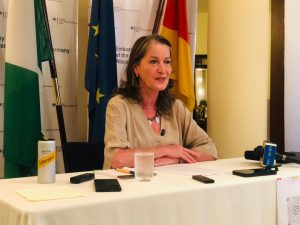
But the strategy is not just military. It’s a 360-degree approach that includes support for the Nigeria Police Force and the NDLEA.
This holistic view connects back to the rebuilding efforts in states like Borno, Adamawa, and Zamfara. By funding the reconstruction of schools, markets, housing, and police stations, the partnership aims to restore “both security and daily life for local people.”
As the two nations head to Berlin, the relationship is being framed as a partnership of equals. This alliance is built on mutual economic interest and a shared understanding that a stable, prosperous and secure Nigeria is a vital goal, enabling infrastructural development, building of schools and job creation.


